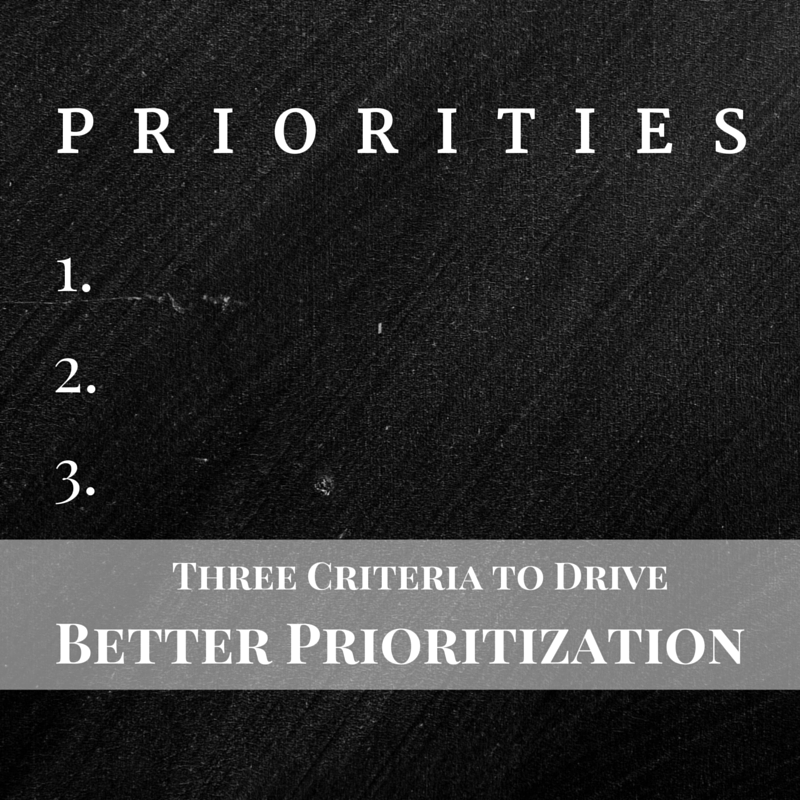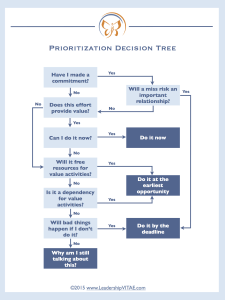
Remember when we had more than enough time, resources and money to accomplish everything we planned and promised?
Me neither.
Every moment of every day is spent balancing conflicting demands
The requests can be endless. A presentation that needs to get out by 5pm. Returning a call from the school. The dentist appointment I keep putting off. Uneaten lunch on my desk. Over 100 unread emails.
Home or office, the demands keep coming.
Good intentions are not enough for good results
Without a clear method to prioritize all the conflicts, we do the best we can, but our best may not be enough. We may be prioritizing what seems important (or has the loudest requestor), without prioritizing those things that help us get what we need to achieve our goals and commitments.
The result can be a dark hole that we’re constantly trying to dig out of.
Does this sound familiar?
Commitments, Relationships, and Value matter
A very simple evaluation system can be used to determine the priority items that require our attention now, soon, by a particular deadline, or never. That’s right…never.
Some of the things we tend to focus on should be ignored, never to be spoken of again. The key is making sure we’re ignoring the right things to free up time for the rest.
Commitments
If we have not made a commitment to get something done, it means we can use other criteria to determine whether or when it should get done. If we have made a commitment, we should consider…
Relationships
We should always keep our word. Promises matter.
Ideally we aren’t making promises we cannot keep. However, if we promised our friend’s sister’s cousin that we’d make it to that art opening, and we have other demands that need to be met, we may be willing to risk the relationship.
We must each decide our critical relationships, but whether those are our family, manager, or key stakeholders, we should not risk them by missing committed deadlines.
Value
Once we’ve determined our commitment and relationship status, the relative value of the demand is the key evaluation criteria.
High-value items that can be done right away should be. If we cannot do them right away, we should be prioritizing any dependencies or efforts that will provide the capacity to get them done.
Sometimes, we need to complete necessary non-value items, like registering our car, or bad things happen. If it’s going to risk our credit, health, marriage, or job, it’s worth getting done by the deadline.
For everything else, the only remaining question is – why are we still talking about it?
What criteria do you use to prioritize conflicting demands? Do these make sense, or would you make a change or addition? I’d love if you could share your feedback in the comments below and keep the conversation going.

Interested in using this method to prioritize your work? Click here to access a simple prioritization decision tree that you can use for reference.
Like it? Please share it with your friends and colleagues. I’d also appreciate any feedback you have so I can continue to make improvements to the leadership tools I’m creating for your growth and development. Thank you!








